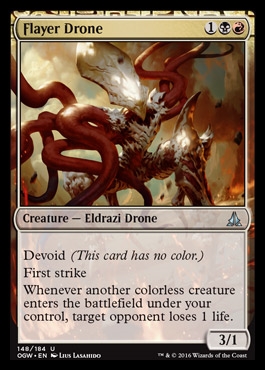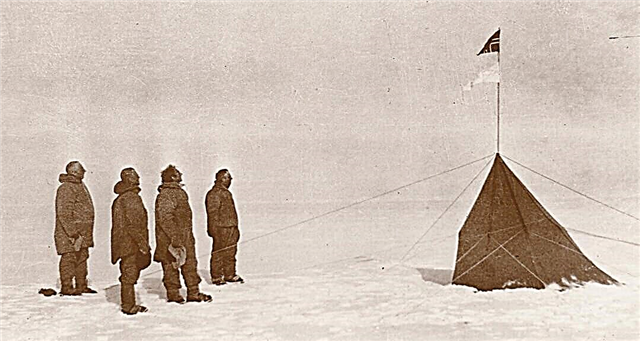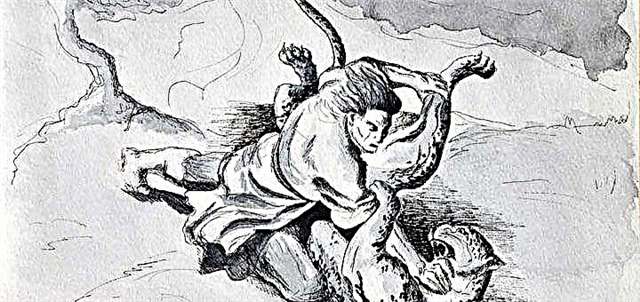Ancient Greeks called Tavrida modern Crimea. Taurus lived there - a Scythian tribe that honored the virgin goddess and made her human sacrifices, which in Greece had long gone out of custom. The Greeks believed that this virgin goddess was none other than their hunter Artemis. They had a myth, with the complication and the decoupling of which stood Artemis, and both times - with a human sacrifice - albeit imaginary, imperfect. The plot of this myth was on the Greek coast, in Avlida, and the denouement was on the Scythian coast, in Tauris. And between the plot and the denouement stretched one of the bloodiest and most cruel stories of Greek mythology.
The great Argos king Agamemnon, the main leader of the Greek rati in the Trojan War, had a wife, Clytemnestra, and had three children from her: the eldest daughter Iphigenia, the middle daughter Electra, and the youngest son Orestes. When the Greek army set sail on a trip to Troy, the goddess Artemis demanded that Agamemnon sacrifice his daughter Iphigenia to her. Agamemnon did this; how this happened, Euripides showed in the tragedy "Iphigenia in Aulides." At the last moment, Artemis took pity on the victim, replaced the girl on the altar with a doe, and Iphigenia sped away on a cloud to the distant Tauris. There stood the temple of Artemis, and in the temple was kept a wooden statue of the goddess, as if falling from heaven. At this temple, Iphigenia became a priestess.
Of the people, no one saw or knew that Iphigenia was saved: everyone thought that she died on the altar. Her mother Clytemnestra harbored a mortal hatred for her infanticide husband. And when Agamemnon returned victorious from the Trojan War, she, avenging her daughter, killed him with her hand. After this, her son Orestes, with the help of his sister Electra, avenging his father, killed his mother. After this, the revenge goddess Erinnia, avenging Clytemnestra, sent madness to Orestes and drove him in agony throughout Greece until he was saved by the god Apollo and the goddess Athena. In Athens there was a trial between the Erinnias and Orestes, and Orestes was acquitted. Aeschylus spoke in detail about all this in his trilogy Oresteia.
He did not tell only about one thing. In atonement, Orestes had to accomplish a feat: to obtain the idol of Artemis in distant Tauris and bring him to Athenian land. He was assisted by his inseparable friend Pilad, who married his sister Elektra. How Orestes and Pilad did their work and how Orestes found his sister Iphigenia, whom he considered long dead, - Euripides wrote the tragedy Iphigenia in Tauris about this.
The action is in Tauris in front of the temple of Artemis. Iphigenia goes to the audience and tells them who she is, how she was saved in Aulis and how she now serves Artemis in this Scythian kingdom. The service is difficult: all the strangers the sea brings here are sacrificed to Artemis, and she, Iphigenia, must prepare them for death. What with her father, mother, brother, she does not know. And now she had a prophetic dream: the Argos palace collapsed, there is only a column among the ruins, and she dresses this column in the same way as strangers are dressed here before the victim. Of course, this column is Orestes; and a dying ceremony can only mean that he died. She wants to mourn him and leaves to call her minions for this.
While the scene is empty, Orestes and Pilad overlook it. Orestes is alive, and he is in Tauris; they are assigned to steal an idol from this temple, and they are watching how to get there. They will do it at night, and will spend the day in a cave by the sea, where their ship is hidden. There they are sent, and Iphigenia returns to the stage with a choir of servants; together with them she mourns both Orestes, and the evil rock of her ancestors, and her bitter share in a foreign land.
Herald interrupts their crying. Just on the seashore, the shepherds captured two strangers; one of them fought in a fit and conjured the pursuers of Erinnius, and the other tried to help him and protect him from the shepherds. Both were taken to the king, and the king ordered in the usual order to sacrifice them to Artemis: let Iphigenia prepare for the proper rite. Iphigenia in dismay. Usually this service with a bloody sacrifice is a burden to her; but now, when the dream told her that Orestes had died, her heart was hardened and she was almost glad of their future execution. Oh, why didn’t the culprits of the Trojan War come here — Elena and Menelaus! The choir grieves for a distant homeland.
Enter captives. They are young, she pity them. "What's your name?" She asks Orestes. He is silently gloomy. "Where are you from?" - “From Argos.” “Did Troy fall?” Did the culprit Elena survived? and Menelaus? and Odysseus? and Achilles? and Agamemnon? How! he died from his wife! And she is from her son! and son - is Orestes alive? ” “Alive, but in exile — everywhere and nowhere.” - “Oh happiness! my dream was false. ” “Yes, even gods are false dreams,” says Orestes, thinking about how they sent him for salvation, and led him to death.
“If you are from Argos, then I have a request for you,” Iphigenia says. - I have a letter to my homeland; I will spare and let go of one of you, and let him give a letter to whom I will tell. ” And she leaves for the letter. Orestes and Pilad begin a noble dispute over which of them to stay alive: Orest tells Pilad to be saved, Pilad - to Orest. Orestes overpowers in a dispute: “I killed my mother, should I really kill another friend too?” Live, remember me and do not believe the false gods. " “Do not anger the gods,” Pilad tells him, “death is near, but not yet come.” Iphigenia tolerates writing boards. "Who will take them?" “I,” says Pilad. “But to whom?” “Orestes,” Iphigenia answers. - Let him know that his sister Iphigenia did not die in Aulis, but serves Artemis of Tauride; let him come and save me from this hard service. ” Orestes does not believe his ears. “Should I pass this letter to Orest? - asks Pilad. - Good: I transmit! " - and he hands over writing boards to a comrade. Iphigenia does not believe her eyes. "Yes, I am your brother Orest! - shouts Orestes. “I remember the veil that you wore, where you depicted an eclipse of the sun, and the lock of hair that you left your mother, and the great-grandfather spear that stood in your tower!” Iphigenia rushes into his arms - to think only, she almost became the murderer of her brother! With jubilant songs they celebrate recognition.
An accident happened, but the main thing remained: how did Orestes get and take away the idol of Artemis from the Tauride temple? The temple is guarded, and the guard cannot be mixed. “I came up with! - Iphigenia says, - I will deceive the king by cunning, and for this I will tell him the truth. I will say that you, Orestes, killed your mother, and you, Pilad, helped him; therefore both of you are unclean, and your touch defiled the goddess. And above you and above the statue you need to make a purification - ablution in sea water. Huck, and you, and I, and the statue will go to the sea - to your ship. " Decision is made; the choir sings a song in honor of Artemis, rejoicing in Iphigenia and envious of her: she will return to her homeland, and they, the minions, MUCH LONGER yearn for a foreign land.
Iphigenia leaves the temple with a wooden statue of the goddess in her hands, the king is facing her. Serving Artemis is a female affair; the king does not know his subtleties and obediently believes Iphigenia. The purification of an idol is a sacrament, let the guards be removed, and the inhabitants do not leave the houses, and the king himself will fumigate the temple so that the goddess has a clean monastery. (This is also true: the goddess needs to be cleansed of the blood of human sacrifice, and she will have a clean abode in the Athenian land.) The king enters the temple, Iphigenia with the prayer of Artemis follows the sea, followed by Orestes and Pilada. The choir sings a song in honor of the prophetic Apollo, the mentor of Orestes: yes, there are false dreams, but there are no false gods!
There is a denouement. The messenger runs in, calls the king: the captives fled, and with them - the priestess, and with her - the idol of the goddess! They, the guards, stood for a long time turning away so as not to see the sacraments, but then turned around and saw a ship near the shore, and the fugitives on the ship; the guards rushed to them, but it was too late; rather, on ships to intercept criminals! However, here, as often happens in the interchanges at Euripides, a “god from the car” arises: the goddess Athena appears above the scene. “Stop, king: the work of the fugitives pleases the gods; leave them alone and let go of these women from the choir after them. And you are bolder, Orestes: rule to the Athenian land and there, on the shore, erect the sanctuary of Artemis; she will no longer be human victims, but in memory of Tauris on the main holiday they will sprinkle her idol on blood. And you, Iphigenia, will become the first priestess in this temple, and the descendants there will honor your grave. And I hurry after you to my Athens. Way, fair wind! ” Athena disappears, the Taurian king remains kneeling, tragedy ends.












